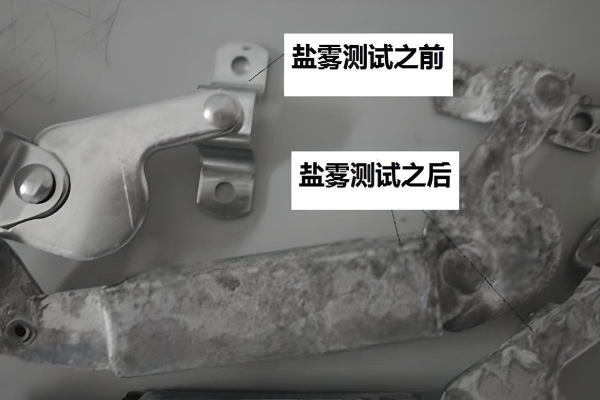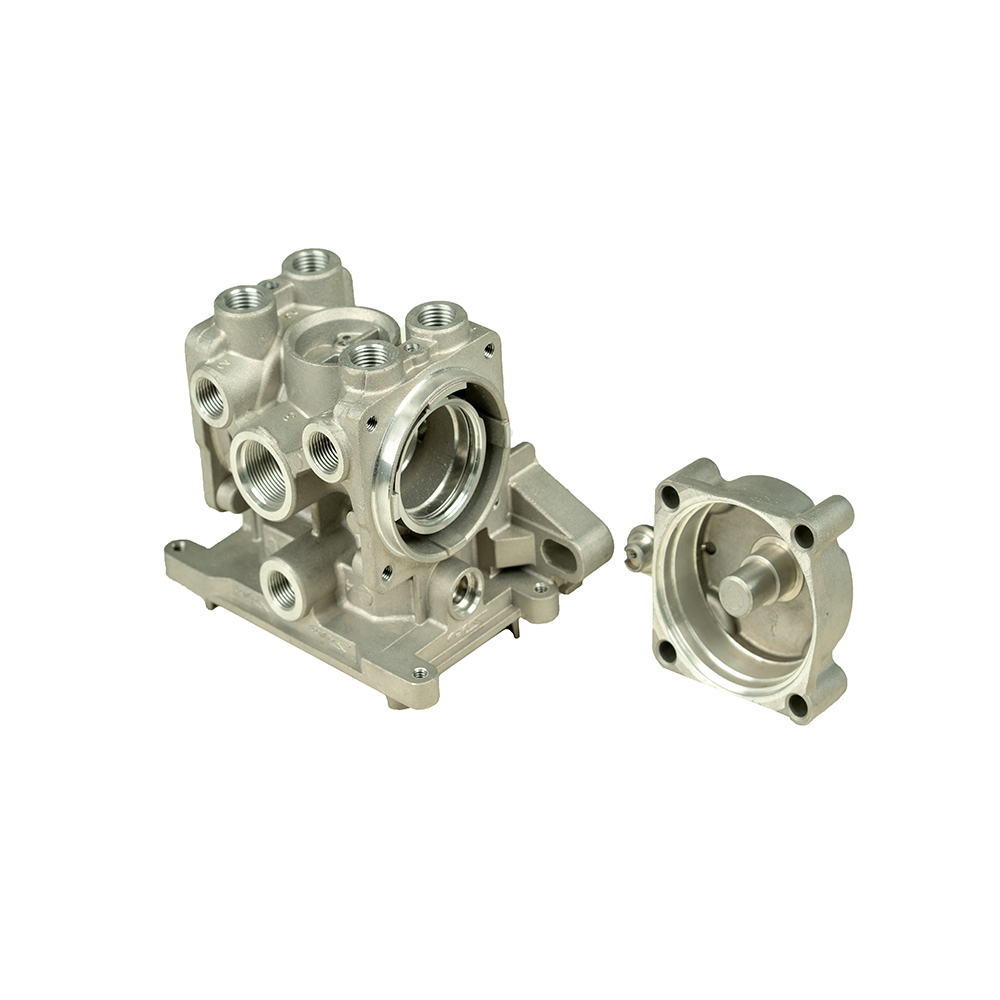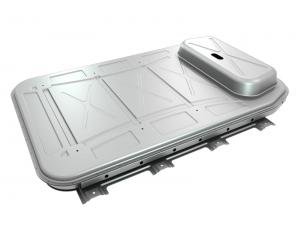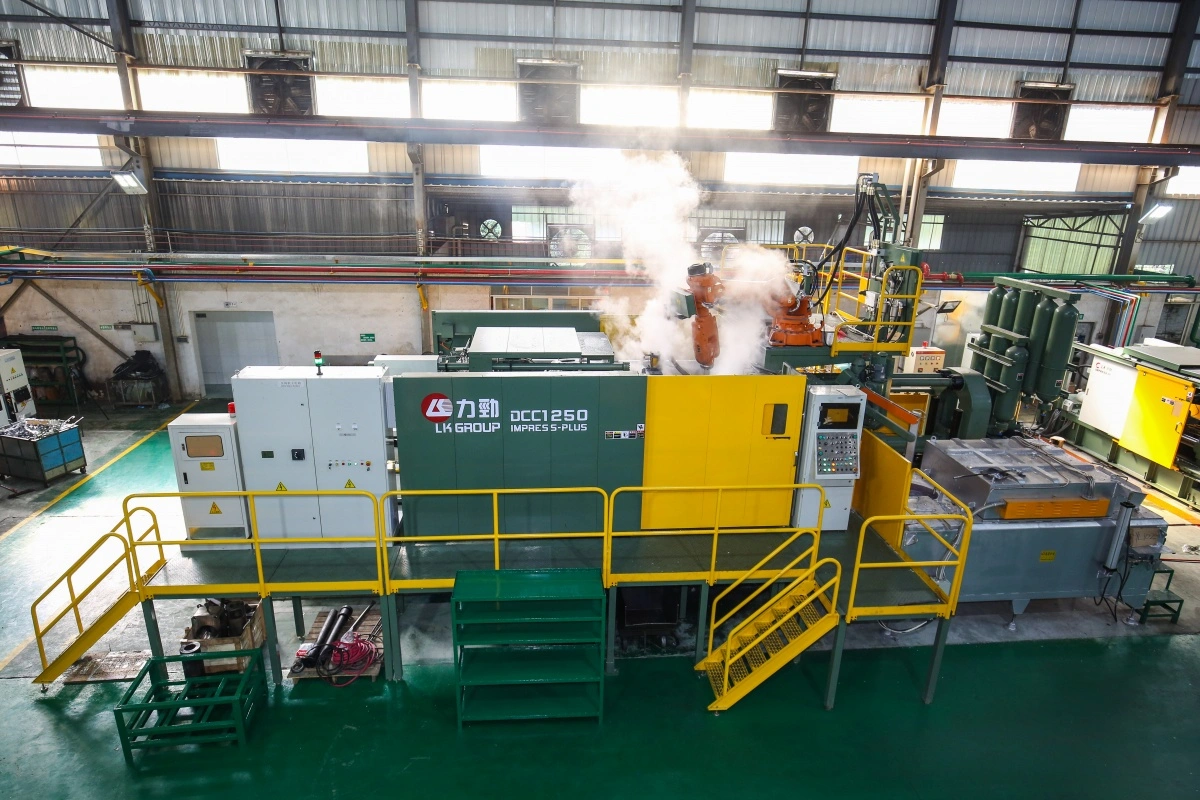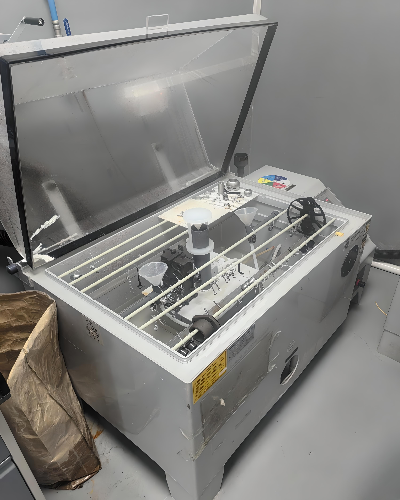

Aluminum die-casting is a key process in the automotive industry, valued for its lightweight, strong, and thermally conductive properties. Components like engine blocks and transmission housings benefit from these traits, enhancing fuel efficiency and performance. However, exposure to harsh conditions such as moisture and road salts can cause corrosion, compromising durability. Salt spray testing is critical to ensure these components withstand such environments, maintaining reliability and safety.
Salt spray testing, or salt fog testing, evaluates corrosion resistance by exposing parts to a controlled saline environment, typically a 5% sodium chloride solution at 35°C. This simulates corrosive conditions like those in coastal areas or on salt-treated roads. The test accelerates corrosion, allowing manufacturers to assess how aluminum die-cast parts perform under prolonged exposure to harsh conditions.
Aluminum naturally forms a protective oxide layer, but this can be damaged by chloride ions from road salts, mechanical wear, or galvanic corrosion when paired with other metals. Corrosion can weaken structures, cause leaks, or lead to functional failures, posing safety risks. Salt spray testing identifies these vulnerabilities, ensuring components remain robust in corrosive environments.
Many aluminum die casting auto parts are coated with protective layers like anodizing or powder coating to boost corrosion resistance. Salt spray testing assesses these coatings' effectiveness by measuring corrosion onset or extent after exposure. It also detects manufacturing flaws, such as porosity, that could undermine performance. This ensures only high-quality, durable parts are used in vehicles.
Automotive components must meet strict standards set by organizations like ISO, ASTM, and SAE, including ASTM B117 and ISO 9227 for salt spray testing. Passing these tests is often required for certification and market approval. Salt spray testing provides data to prove compliance, ensuring parts meet safety and performance expectations.
Salt spray testing accelerates corrosion to predict long-term performance in a short time, aligning with the automotive industry's fast-paced development cycles. It offers insights into material and coating durability, guiding design and material choices to produce more reliable components.
Corrosion failures can lead to recalls, warranty costs, and reputational damage. Salt spray testing helps manufacturers address issues early, ensuring components perform reliably. This builds customer trust and enhances a brand’s reputation for quality, a key advantage in the competitive automotive market.
Salt spray testing is vital for ensuring the corrosion resistance of die-cast aluminum automotive components. By simulating harsh conditions, it validates coatings, ensures compliance with standards, and predicts long-term durability. As aluminum remains a preferred material for remains a preferred material in the automotive industry, salt spray testing will continue to be essential for ensuring the reliability and safety of vehicles in challenging environments.
